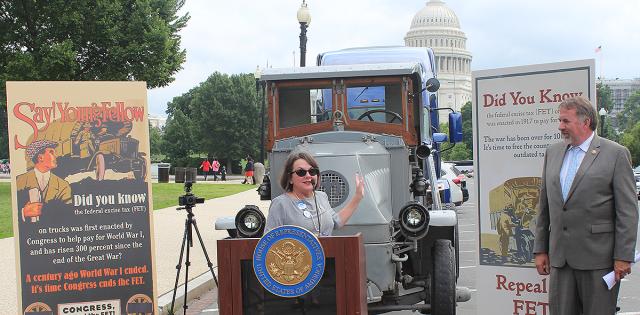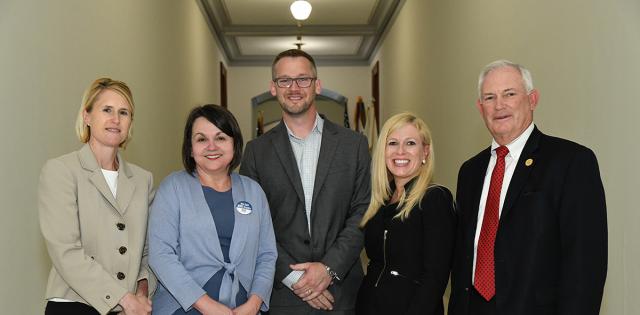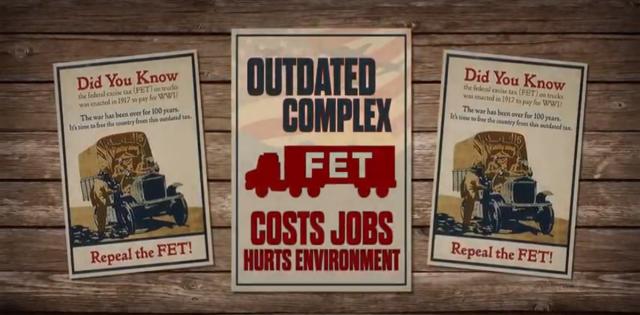
Taxes
Taxes have a major impact on the auto- and truck-retail industries, spanning consumers to manufacturers to local dealerships. Federal taxes have a pointed impact on vehicle affordability for consumers, and dealership employment in local communities.
On behalf of 16,000+ local new-car dealerships and 1,800+ new-truck dealerships–along with more than one million dealership employees across America–NADA and ATD advocate for: Fair, simple and predictable tax policies that keep vehicles affordable for consumers; tax incentives that are simple and easily accessible; and tax policies that broadly encourage employment at the local level.
Key tax issues include: maintaining the deductibility of floorplan interest, a central dealership expense of holding inventory that impacts vehicle affordability; the Federal Excise Tax (FET) on heavy-duty trucks, a complicated tax enacted over a century ago that hampers sales and hinders the introduction of cleaner trucks on America's roads; and the Border Adjustment Tax (BAT), which would dramatically increase the cost of both domestic and international nameplate vehicles with components manufactured outside of the United States.
Federal Excise Tax
Enacted in 1917 to help pay for World War I, the Federal Excise Tax (FET) on heavy-duty trucks is the highest tax Congress has imposed on any product.
The Federal Excise Tax (FET), first enacted in 1917 to help pay for World War I, is a 12% excise tax on the sale of most new heavy-duty trucks that remains to this day. The tax depresses the sale of heavy-duty trucks–the vast majority of which are manufactured in America, and delays the purchase of safer and more fuel-efficient trucks. NADA and the American Truck Dealers (ATD) is urging Congress to repeal the tax.
Estate Tax
Increased estate taxes would negatively impact working capital available to dealerships.
Proposals to eliminate the stepped-up basis on inherited assets for gains of more than $1 million ($2 million for married couples) would needlessly strip working capital from dealerships, which are mostly second- and third-generation businesses operated as pass-throughs. Under this proposal, at the time of death, the capital gains rate would be assessed on the fair market value of the assets less the decedent’s basis as if the assets had been sold, triggering liquidity problems and tax compliance burdens, and eviscerating much of the benefit of the current federal estate tax exclusion.
Floor Plan Interest Deductibility
America's entire system of purchasing new cars and trucks relies upon the availability of affordable floor-plan financing–which allows dealerships to purchase inventory affordably from manufacturers and hold it for consumers.
In today's market, between 40,000-50,000 new cars are sold each day. To make those sales possible, local dealerships borrow money from lenders to purchase those vehicles directly from factories, hold those vehicles as inventory, and then sell them to customers. Loans taken to purchase inventory are called "floorplan loans" and interest paid on those loans is called "floorplan interest." The entire automotive ecosystem is very sensitive to the cost of floorplan interest and the tax treatment of floorplan expenses, and the ability to deduct the business expense of floorplan interest is critical to vehicle affordability.
Media Contacts

Jared Allen

Join the NADA grassroots network by texting NADA to 52886.
Your Members of Congress
When lawmakers learn about your business and employees, they become better informed about how their decisions affect your ability to serve customers and grow your business.
Update Your Address
Related News
More From NADA HeadlinesLegislative Affairs
Learn how NADA Legislative Affairs protects and promotes franchised auto and truck dealerships’ interests before Congress.
Regulatory Affairs
Learn how NADA Regulatory Affairs Group protects and promotes franchised auto and truck dealerships’ interests before the federal administrative agencies.














